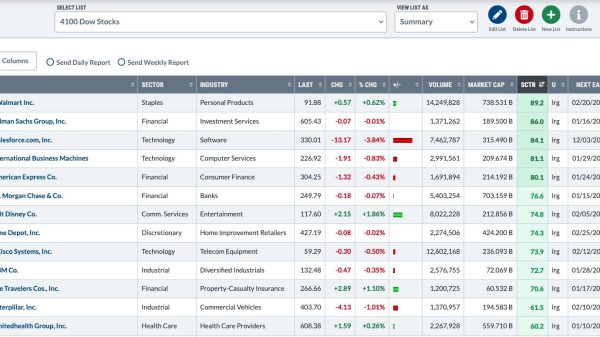Two million more people will be claiming disability benefits by the end of the decade as mental health problems help to push the cost to taxpayers up by more than 50 per cent.
Official forecasts predict that spending on disability benefits will rise by £17 billion a year, to £48 billion in current prices, and there are warnings that spending is running out of control. Depression and anxiety are now the leading reasons for adults to receive such benefits, and the ageing population means that more people are also struggling with joint and back pain.
Britain’s ill health is becoming increasingly expensive and will leave the government struggling to find room for tax cuts or money to spend on other public services, experts have warned.
More than four million people of working age are also predicted to start claiming separate incapacity benefits before the end of the decade, despite the government’s back-to-work drive having reduced numbers by 370,000.
Forecasts from the Department for Work and Pensions show the number on sickness benefits increasing steadily from 3.2 million last year and spending rising from £23.2 billion to £31 billion in current prices by 2028-29.
However, less attention has been paid to separate disability benefits, which are paid regardless of whether someone can work to compensate them for the costs of chronic conditions. The 5.5 million present recipients are forecast to increase to 7.6 million, about one in nine of the population, and spending to increase from £31.1 billion last year to £48 billion in 2028-29 in current prices. The 2.4 million working-age people now receiving disability benefits will rise to 3.7 million.
This will mean taxpayers spending almost £80 billion a year on benefits linked to ill health, about half the present annual cost of the NHS.
New claims for the main disability benefit, known as personal independence payments (Pip), have doubled since the pandemic and are now running at a record level of more than 40,000 a month. Sam Ray-Chaudhuri, a research economist at the Institute for Fiscal Studies, said that the huge post-Covid increase “doesn’t look to be doing away. As these forecasts show, without policy change there will be significantly increased spending.”
He said that the £17 billion extra on disability benefits was “a very significant increase,” adding: “The government’s 2p National Insurance cut was around £9 to £10 billion, so that is the order of magnitude we are talking about, which is what you need to support another two million people.”
The costs were “definitely something that is going to apply pressure to the government”, he said, as both the Conservatives and Labour looked for ways to bring down a record tax burden.
Ray-Chaudhuri also warned of a “big risk” from longer-term government reforms that will allow people to keep incapacity benefits while returning to work. “A side-effect of this change will be you’ll load even more spending on to this [disability] side of the system, which seems to be almost getting out of control,” he said.
Pip payments give people up to £172.75 a week if they struggle with everyday tasks such as washing and dressing, mixing with other people or leaving the house. Mental health problems and learning disabilities now account for £6.7 billion of annual spending on Pip for adults. Anxiety and depression are the most expensive single class of condition, at £1.6 billion a year, more than ten times the figure when the benefit was introduced a decade ago.
Arthritis, back pain and other conditions strongly linked to an ageing population now cost about £3.3 billion a year.
In children, who mostly receive a separate disability benefit known as disability living allowance, learning and behavioural difficulties and other mental health problems now cost £2.8 billion a year.
Officials believe that the trends are driven by an older and sicker population, as well as by greater awareness of mental health problems and a cost of living crisis that is driving more people to claim support.
A government source said: “The drivers of rising disability benefit spending are complex. Changing attitudes to mental health, the shadow of Covid and inflation are all involved.” They added: “This government isn’t afraid to take long-term decisions on welfare reform. Labour won’t go near this stuff.”
David Finch of the Health Foundation think tank said there was evidence from a range of sources both that people were more aware of mental health conditions and that illness was getting worse. “The pandemic did lead to an increase in people reporting mental health conditions and then you’ve had the cost of living crisis, and those things have exacerbated an underlying trend,” he said.
Reductions in other benefits and cost of living pressures may also have pushed more people to claim, he said. “People who maybe could have coped before on other benefits and may not have thought of claiming disability elements, and may not have thought of themselves as disabled, may think ‘actually, I do need that extra support now’.”
Finch said that better NHS mental health and preventative services would head off problems earlier, and more generous, wider benefits would stop so many people needing to claim disability benefits. Although this would be expensive, Finch said, “it becomes more expensive when you’re trying to tackle the consequences of the problem rather than taking a more upstream approach of preventing the problems in the first place”.
Pip claims may be reviewed only every ten years and Sir Steve Webb, a partner at the consultants LCP, said that people “get stuck on benefits, often for many years”, pointing out that the number of pensioners receiving the benefit was growing faster than the number of younger adults.
As the latest figures show a quarter of a million more people forecast to start receiving disability benefits than was expected less than a year ago, Webb said: “Previous projections for the growth in numbers on disability benefits were shocking enough, but the latest upward revision is even more startling.
“The fastest growing groups are often those who have been on benefit for five years or more, and it is very hard to see what will now lead these people to end their claim. Far more needs to be done to intervene early, both by preventing the need for a claim and by engaging with people early in a claim to avoid them getting stuck on benefits for the long term, which is neither in their interests nor those of the taxpayer,”
A spokesman for the Department of Work and Pensions said that the government would “tear down barriers for millions by removing the fear of reassessment for claimants trying work”, adding: “We are investing £2.3 billion into mental health services and taking long-term decisions on welfare reform that will grow the economy and change lives.”
Read more:
Millions set to claim disability benefits as mental illness and long covid soars
























